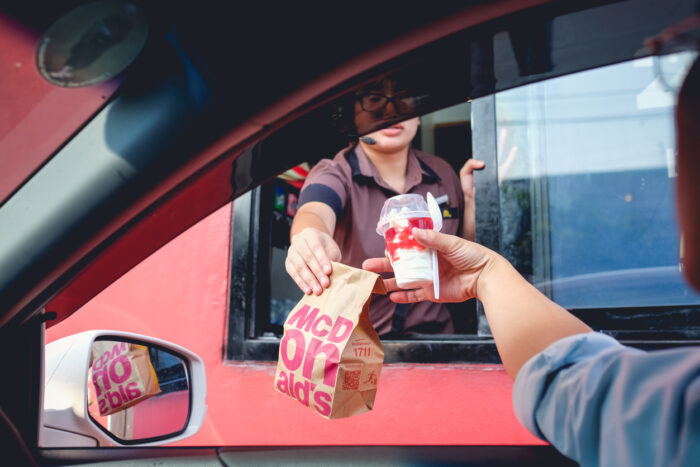Insights
Why fast food is a top menu item for property investors
Published
27 August, 2024

Fast food is a common feature on many Australian dinner tables. But is take away just as popular with commercial property investors? There are many reasons why it should be; investing in fast food retailers can be incredibly secure, even in challenging economic climates.
Commercial property investors often look for opportunities that’ll safely generate robust passive income. Inflation and taxation are two components they wish to shield their hard-earned from, and they typically find this in commercial assets. Surprising to some, it’s fast food retailers that can whet the appetite of these investors.
Here’s how fast food chains can be an excellent commercial property investment:
1. Resilience and relevance

How often do you see a McDonald’s close down? Fast food outlets usually only multiply. Their market size is approximately $25 billion in Australia alone and this is growing at a rapid rate.
Growth is driven by a range of factors, such as consumer demand for convenience and quick meals options. In a busy modern society—with dual parent incomes the norm and time an unaffordable luxury for many—fast food solves the occasional meal crisis for the busy parent, late night worker or Aussie with a dire appetite.
Wise investors will first look at relevance when they acquire a new site: relevant location, relevant tenant, relevant industry. Fast food property investments often tick all three.
2. Recession-proof
Fast food outlets seem to coast through downturns. Here’s why:
- Affordability: In tough times, consumers look for ways to cut costs and ease their stress. Fast food offers a cheaper way to dine and a no-fuss way to access a quick meal.
- Consistent demand: Fast food has remained a prominent retail segment for decades. And with disposable income fairing worse and worse against living expenses, the odd cheap and cheerful meal doesn’t go astray for many Australians.
- Adaptability: Discounts, value meals, promotions… Fast food chains are very good at attracting budget-conscious diners.
- Adherence to consumer behaviour: Naturally, less people look for extravagant dining experiences in a recession. The choice, more often, will be a cheaper alternative over a considerable outlay on dinner.
3. Long-term income

Fast food retailers will step into new premises with a long-term outlook. It’s common for lease tenures to last up to 20 years, with options of up to ten. That means solid income on a considerable time horizon.
These lease terms are sound, too. National and international fast food chains have expert legal teams with concrete terms and premises requirements, which look after their organisation first, of course, but also ensure very good terms for the landlord. They see—as landlords in turn should—that a favourable outcome for both parties only ensures a promising, prosperous relationship.
4. Secure investment
You might liken an asset with KFC or McDonald’s as an anchor tenant to blue chip stocks, with a multinational corporation and their long history of groundbreaking success, owing to the low risk profile of such an investment.
The additional benefit is that these anchor tenants attract tenants with impeccable track records of success. Why? If a site features a KFC, you can be sure of one thing: high volumes of foot traffic. Other fast food outlets will want in on that action.
5. Wide customer base
Western countries love convenience. And even the typical health nut has at least once been found unwrapping a Big Mac or diving into a bucket of fried chicken.

From the blue collar workforce to time deprived affluent segments of the population (and their kids), fast food is commonplace on the dining table or in the backseat of the car on the drive home.
Couple this with drive-throughs, and you can be sure that a fast food property investment will retain its relevance, not just for years, but for generations.
6. Protection against inflation
Yields from a 10-year lease to a major fast food outlet may match those of a 10-year bond. But it’s the built-in escalations that potentially make a fast food property investment a superior investment decision. Because these rental increases provide a much-needed shield against inflation.
Fast food can be found on every major arterial road and in every precinct of every capital city around Australia (and indeed the world). Its relevance is undisputed, its resilience proven and its upsides—for landlords able to build connections with highly-regarded fast food chains—abundant. Perhaps it deserves a place in your investment portfolio.
Want more articles like this? Subscribe to our newsletter. Every month, we’ll send you expert opinions and market leading insights on Australian real estate, economic trends and property investment strategies. Join over 2,000 subscribers simply by entering your email here.



